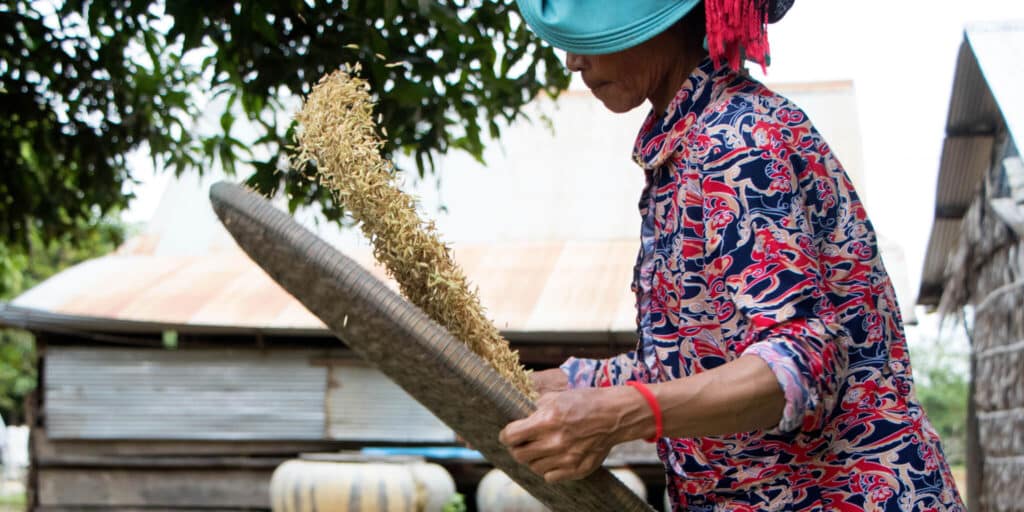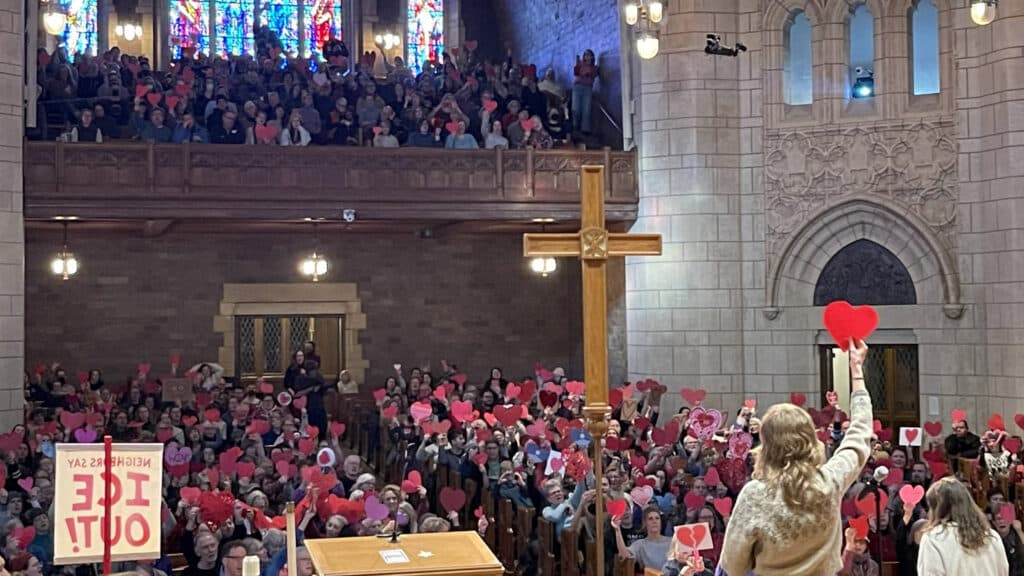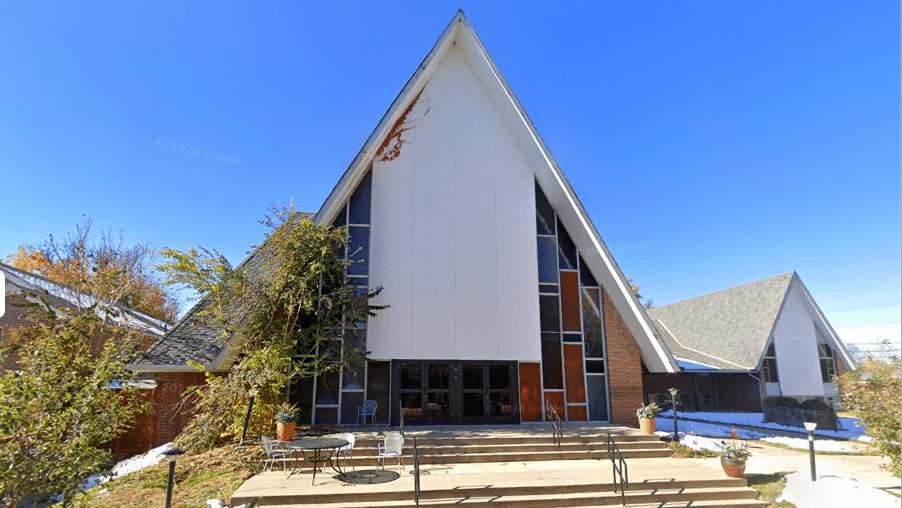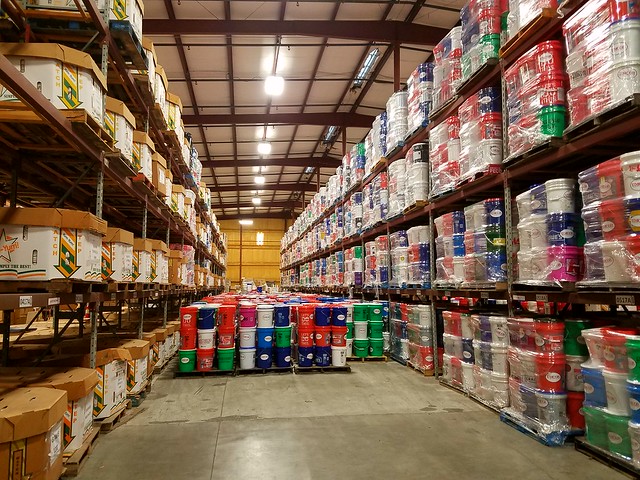Community Health and Agricultural Development in Cambodia
By Christie R. House
July 31, 2019
Tem Krin noticed something about her neighbors in the Tropiang Ampil, Kampong Chhnang province of Cambodia. Something good – they were happier and healthier, and their homes were surrounded by chickens.
After talking with a few people, Krin discovered some of her neighbors were members of a Community Health and Agricultural Development program of the Methodist Church in Cambodia. Fortunately, a requirement of that program, and of all CHAD programs, is that members share their knowledge with others in their community.
“Before, I did not believe that chickens would give me extra income,” Krin mused, “but when I witnessed it from my neighbor, I was encouraged and started raising my own chickens.”
Krin applied to participate in CHAD’s Integrated Farming System (IFS), which promotes organic farming practices that preserve, protect and conserve biodiversity in the farming communities. This way of farming expands an individual’s food and income base, enabling families to be resilient and to adapt to climate change.
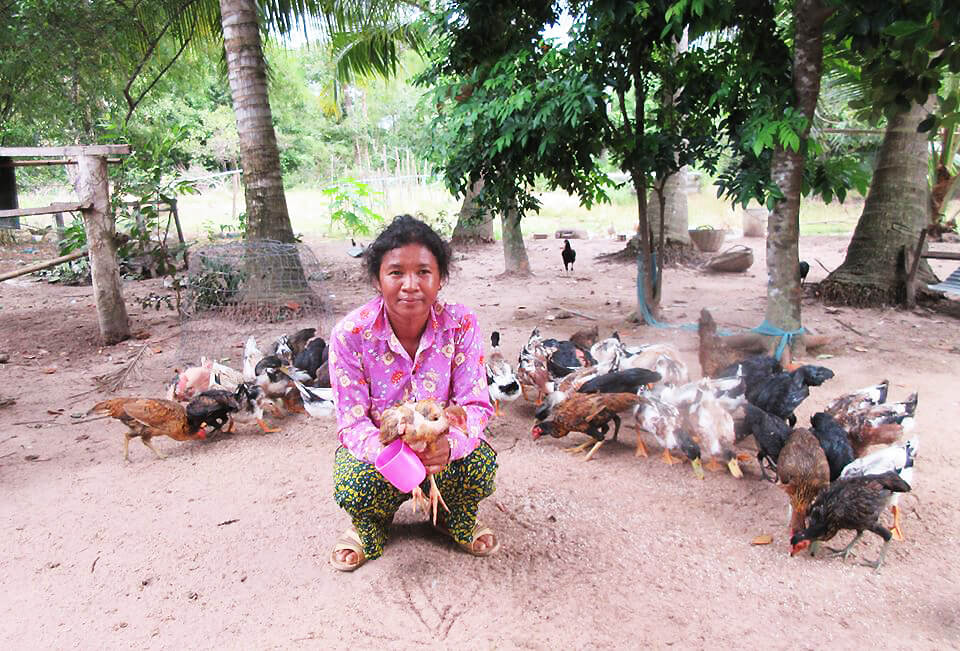
Kennedy Cruz, a Global Ministries missionary who served in Cambodia as director of the CHAD program for more than a decade, says CHAD is guided by its deep belief that people, as God’s image bearers, should not be treated as objects, but rather subjects of their own development process. “As people realize who they truly are, their understanding as mere beneficiaries or recipients of CHAD’s program transforms into a deep sense of self-dignity and independency,” Cruz explains.
After about six months of raising chickens, Krin earned $200 selling some of them at market. That income meant she could send her children to school, construct a latrine for her family and expand her small grocery shop in the village. She also noticed that her family’s health improved because they had enough food to eat, could practice better hygiene and had access to clean water through CHAD’s water filter project.
Local ownership
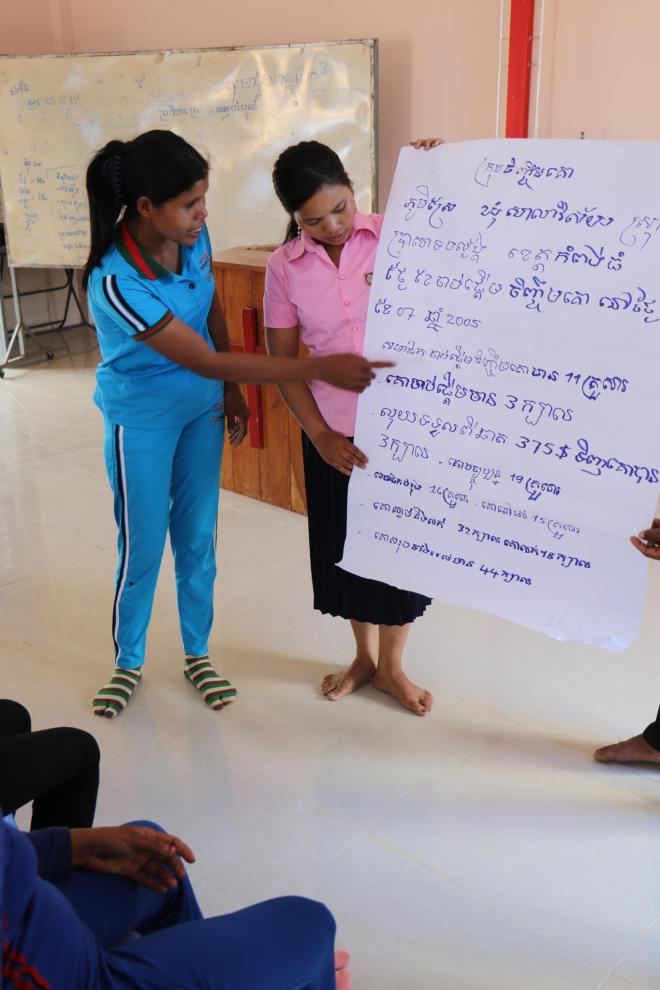
The IFS chicken project is just one of CHAD’s many agricultural and livelihood projects, which also include cow and pig community groups, rice and other kinds of seed banks, weaving and sewing co-ops, land banks and projects that address community health, water and sanitation. The great variety of projects has emerged because the members of the co-op groups decide what they will invest in and what will work best in their communities. From the beginnings of this unique development ministry, the focus has been on the people rather than the projects. CHAD has always been an outreach to Cambodia’s poorest populations through Methodist congregations – a way to improve health, increase incomes and build congregations and communities by integrating all the ministries, social and holy, simultaneously. The first rule of CHAD is to listen to community members, then work with them to achieve their goals.
“We in the CHAD team are consciously working toward program sustainability that is focused on building local ownership by our partners in the communities we are serving,” says Cruz. “A critical element in this process of building local ownership is the quality of engagement happening between the churches and their communities. As a valuable partner of CHAD and God’s agent of change, the church plays a very important role in promoting local ownership and helping people to understand their identity and purpose in life.”
In the spring of 2019, Global Ministries’ development director, Tom Farley, asked Jon Halverson to accompany him on a trip to Cambodia. Halverson, the former vice president of International Development for Land O’ Lakes, is currently a partner in Talanton, an impact investment firm dedicated to a mission to “honor God by lifting people from poverty through impact investing.” Farley and Halverson traveled across the country with CHAD staff to meet the co-op groups and members of the Local Social Concern Committees (LSCC). They were surprised by the willingness of the local groups to speak out and their knowledge of the microfinance process, all along the way.
Social Concern Committees
Much of CHAD’s development work is accomplished through the LSCCs, which create a nucleus for training and information sharing as well as accountability. SCCs also function at regional and churchwide levels. Local churches give space and other support for the groups. Membership is open to church members and nonchurch members, with most groups about half and half, though last year that percentage rose to about 74% nonchurch members. CHAD provides seed money to start a revolving loan fund and training or other resources as appropriate. Members who borrow money pay it back to the group with 2% interest – which is less than the rate charged by other lenders available in rural farm communities.
Through the LSCCs, accountability is conducted transparently – in front of the group. Members know how much was raised, who paid loans back, who borrowed funds and how much money was deposited in the bank account. It’s all written down in carefully kept ledgers.
Trust and accountability is important in Cambodia, which was torn apart by Pol Pot and the Khmer Rouge in the 1970s. Mass killings of anyone who disagreed with the regime, malnutrition, forced manual labor and poor medical care killed between 1.5 and 3 million people – approximately a quarter of Cambodia’s population. Sadly, people learned to fear their neighbors.
New horizons for CHAD
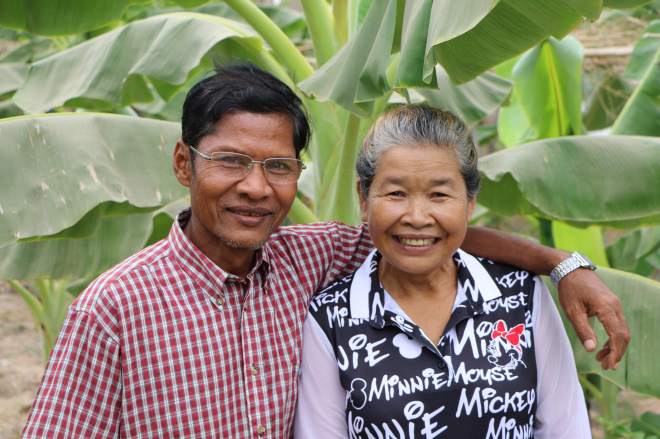
Halverson was impressed by the warm reception he and Farley received and the commitment of the staff, but also of the people involved in the agricultural and economic programs. CHAD members came out in droves to meet them. Members were eager to describe what they were doing in their co-ops.
At some point early in the trip, Halverson asked some of the farmers how the community benefited from participating in CHAD. The farmers said, “It’s taught us to love our neighbors.”
“That was a remarkable moment,” Farley said. “Jon and I turned and looked at each other.” The same question asked of farmers at different locations yielded the same answer.
“We expect people to be more driven on improving their own financial situations,” said Halverson, “but in this program, many are more interested in loving their neighbors, serving their neighbors better. Many were new to church. Offering Christ – and an economic lifeline – that speaks to the whole person.”
CHAD’s director, Kennedy Cruz, moved to Global Ministries’ Asia headquarters in Seoul, Korea, earlier this year to begin to look at other Asian Methodist mission initiatives that could benefit from a CHAD program. Global Ministries has approved an initial grant to support this work.
In the meantime, word of Krin’s success spread among her neighbors in the village. Today, Krin shares her technical knowledge and skills with her neighbors as a CHAD model farmer. More people are joining IFS groups, increasing the number of participants and CHAD’s ability to reach deeper into Cambodia’s rural communities.
To support CHAD’s ministry in Cambodia and possibilities for growth in new places, give to Advance # 14916A.
Christie R. House is the senior writer/editor for Global Ministries.
